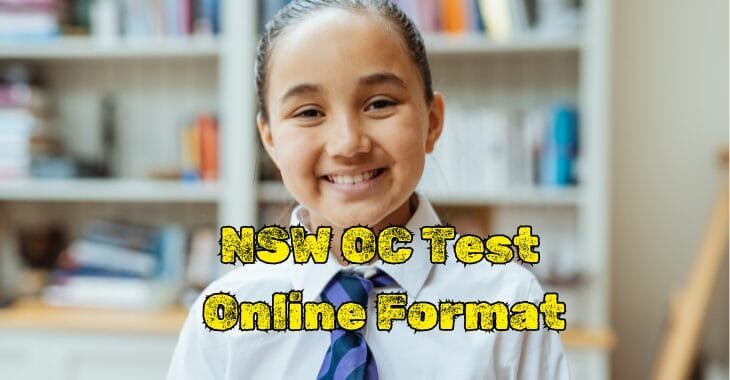
How to Comprehend Different Text Types in OC Test?
Are you taking the OC test soon? Then you must be aware of the difficulty level of this examination. Over the last few years, the reading section has become increasingly challenging, with new added stylistic features and text types to test the student’s comprehension skills.
Before you begin the preparation, you must know the types of questions asked in the test. One of the best ways is to take up OC practice tests frequently. The trial exams give an in-depth insight into the question format, which proves to be highly beneficial for cracking this reading section. Students have to be proficient not only in reading comprehension, but they must possess the ability to analyse and evaluate the text. That’s where the trick lies! You’ll be thrown with twisted articles, difficult poems, abstract topics, and disordered biographical pieces. In a nutshell, the reading section will test your aptitude for argumentative writing to check how well you can control your nerves and flex your muscles.
So, from the above discussion, it’s clear that cracking an OC test is not easy. However, it is not even rocket science. Now that you’ve got an idea about what the test will look and feel like, you can begin with your preparation.
Preparation Tips to Analyse Text Types in OC Test
To make this turbulent trip smooth, engaging, and exciting and to ensure you enjoy every stage of this preparation phase, we’ve come up with the best tips to help you get admission to your dream school.
We’ll help you understand how you can prepare for each part of this test.
POEMS
This is the hardest part of the reading section in an opportunity class test. Check the below tips to successfully answer the questions.
- Check out the title of the poem. Every title has a literal meaning as well as a metamorphic meaning. Focusing on the title will help you identify the hidden meaning, if any.
- Try to understand the overall context of the poem. This will make it easy for you to comprehend the individual sentences.
- Focus on the options given in the MCQs in the poem is too hard to comprehend. Though you may not know the correct answer, sometimes, the keyword in the answer can give you a hint.
- Read more poems and poetries during your preparation phase because the more you read, the better you’ll be able to comprehend the meaning. Usually, most poems have different languages but talk about the same events or subjects.
SCIENTIFIC ARTICLES
This section will introduce you to technical terms and complex paragraphs. But relax! Keep your heads steady and churn out the important portions of the article.
- Mark the keywords and summarise every paragraph. This will quickly help you in finding answers to your questions.
- Don’t get nervous with jargon as you don’t need to understand them. Even if it requires you to do so, you can work it out using contextual clues.
BIOGRAPHICAL PIECES
As the name suggests, you’ll be questioned on the biography of a person or a personality. You can tackle this section in the same way as you would do to handle scientific articles.
- Since it’s not possible for a student to know about the life history of all eminent persons, the passage will already have the information you need to answer the question. The same applies to questions related to major historical events.
- Certain questions will ask for specific details. You can find the exact answer somewhere in the passage.
CARTOONS
This section is the most exciting part for students, but it is also tricky.
- Look at the cartoon carefully, categorise it, and try to analyse the inner meaning portrayed by the illustrator.
- Try out more OC practice tests to brush up on your visual techniques. It would be best to have a good grasp of vectors, symbols, juxtaposition, and more.
SPEECHES
This is more or less similar to non-fiction text types, and it usually tries to coax people somehow.
- Figure out the speaker’s intention and views on the subject matter. This proves to help evaluate even the most minor details.
- Speeches are highly factual. So you don’t have to break your head into understanding the inner meaning. However, speeches may contain metaphors for a better illustration of the point.
- Check if the speech has high modality language because that helps understand the speaker’s intent.
CLOZE PASSAGES
This is one of the easier things to comprehend in the reading section of the OC test. This activity has a passage with a missing word that students must fill.
- Begin with summarising each paragraph. Read the passage carefully,
asthis will help figure out the omitted word. - Read before and after the missing sentence, carefully understand the flow of logic, and you’ll be easily able to find the word.
EXTRACTS
In this part, students will be asked to extract relevant information from an extract. To solve this part, follow the below tips:
- Make a summary of the extracts and try to understand the subtle difference between each extract. Every extract may talk about the same topic but may have slight differences, which may change the entire meaning of the paragraph.
- You can first read the questions and then read the extracts. Some students find this hack valuable because it paints a better picture of the question’s intent.
Get Started with Your Preparation
To wrap up this discussion, one cannot crack the OC test with overnight preparations. This competitive exam demands dedication, hard work, and consistency. Start preparing one year in advance and solve OC test papers as much as possible. These tests will give you the preparation you need to complete the test.






